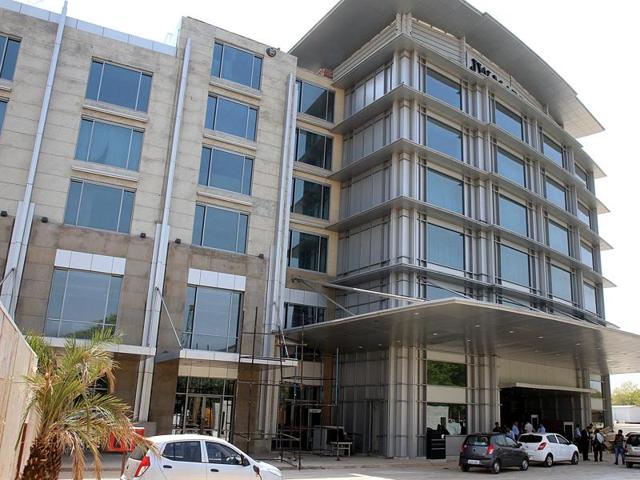Banks restrained from taking possession of JW Marriott in Chandigarh
The Punjab and Haryana high court has restrained a consortium of banks led by the State Bank of India from taking physical possession of hotel JW Marriott, Sector 35, in a loan-default case of about Rs 200 crore.
The Punjab and Haryana high court has restrained a consortium of banks led by the State Bank of India from taking physical possession of hotel JW Marriott, Sector 35, in a loan-default case of about Rs 200 crore.

The order from the high court bench of acting chief justice SJ Vazifdar and justice Arun Palli came on a petition from the hotel, wherein, it had challenged the consortium — with State Bank of Bikaner and Jaipur and State Bank of Patiala the other banks — move of seeking physical possession of around 13,000 square yard property before the UT district magistrate.
The hotel is leased to Marriott International, a global chain, and is run by Marriott Hotels India Private Limited. The Chandigarh municipal corporation had leased the land to a Delhi-based firm, Lokpriya Buildwell Private Ltd for 99 years in 2007. The same year, the firm signed an operating agreement with the Marriott Hotels India Private Limited to run operate and supervise it for 25 years. The hotel became operational in 2011.
In its order, the HC bench said proceedings on the application could continue before the district magistrate on application of consortium. “..but the order, if any, shall not be given effect to till August 17, 2016,” the HC orders states meaning that even if DM passed order in banks’ favour, physical possession of the hotel cannot be taken.
Senior advocate Anand Chhibbar and advocate Gaurav Chopra had told the court that in January 2016, the hotel was informed by the SBI — the lead bank in the consortium — of proceedings initiated for physical possession of the property stating that the Delhi firm had mortgaged it for loans and guarantee and had failed to repay according to the agreement.
The court has been told that the Delhi firm got loan from the banks after the agreement between the hotel and Delhi firm, and that consortium was aware of terms and conditions between them.
The hotel enjoyed pre-existing rights, prior to creation of mortgage by the Delhi firm and the said right of the petitioner was overriding and was not liable to be affected in any manner irrespective of the arrangement between Delhi firm and banks, the petitioner argued.
Symbolic possession of the hotel has already been taken by banks, the court was told.





